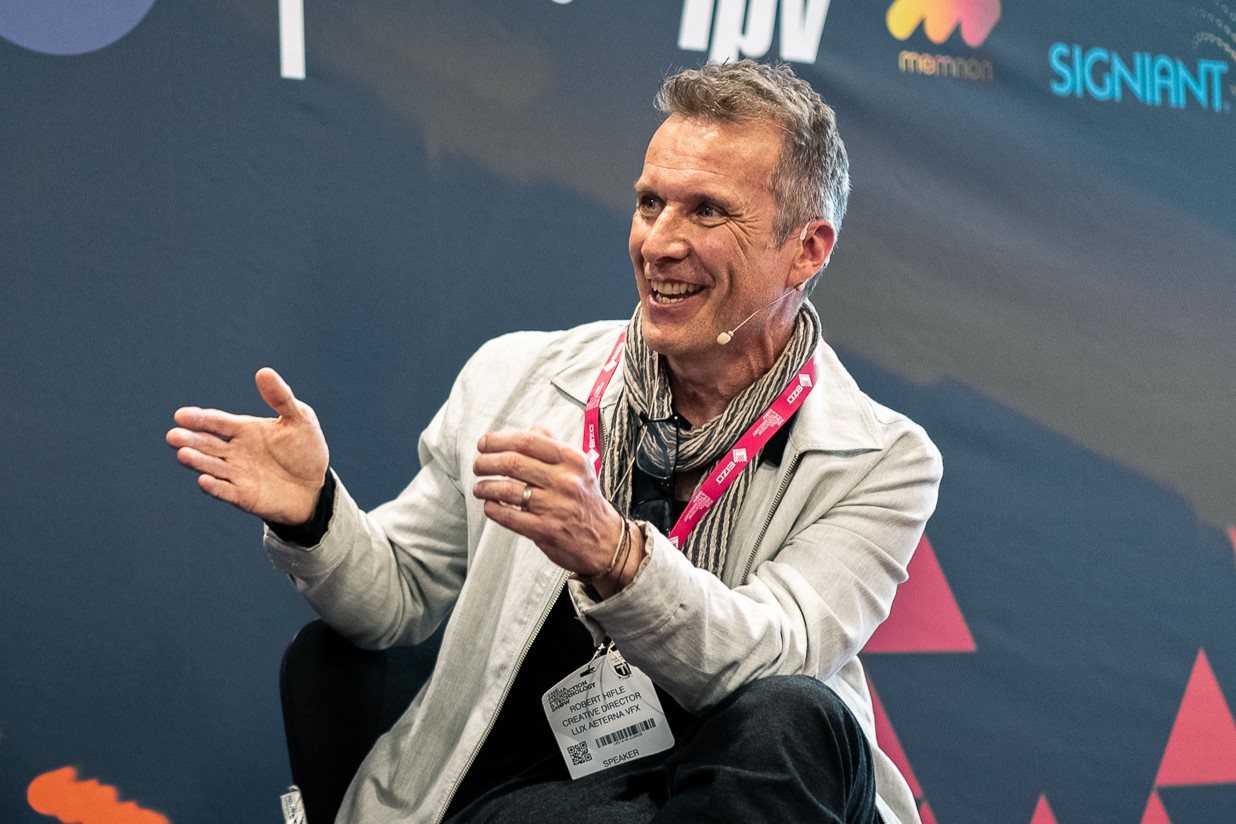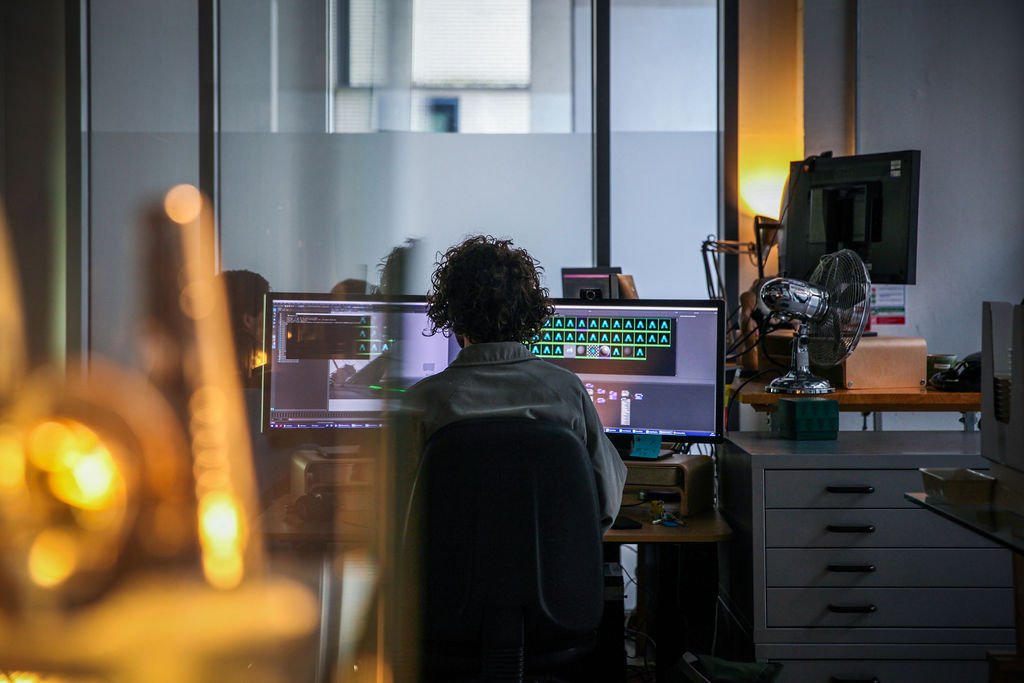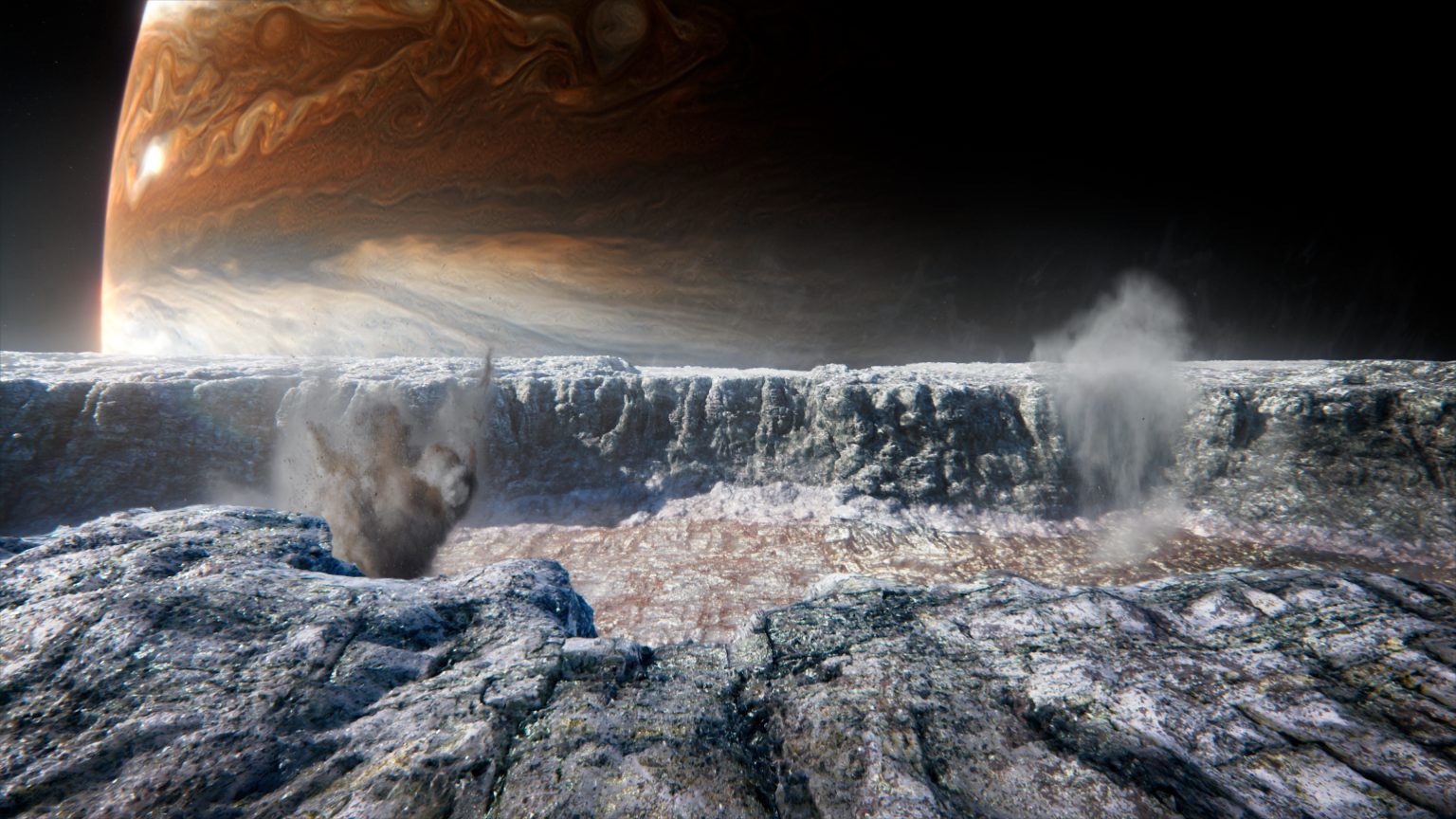Award-winning visual effects studio Lux Aeterna
Interviewed with Rob Hifle, Co-Founder of Lux Aeterna.

Award-winning visual effects studio Lux Aeterna has cemented its place as a leader in the VFX industry with a year full of exciting projects and innovation. Working globally, the studio combines decades of expertise with a bold vision for the future. Known for its mastery of environments, simulation, natural phenomena, and abstract FX, Lux Aeterna continues to empower storytellers through its world-class pipeline and creative partnerships. We caught up with Co-Founder Rob Hifle to find out more.

What is the history of Lux Aeterna and how did the studio come about?
Lux Aeterna was established in 2022 after the rebranding of BDH (Burrell Durrant Hifle), a respected studio with over 25 years of experience. The transition to Lux Aeterna represented a reinvigoration of our creative vision, enabling the studio to focus on high-end VFX, particularly in simulation, environments, and natural phenomena. Two of the original founders, myself and Steve Burrell remained part of the team, and we were also joined by VFX Director Paul Silcox. With strong working relationships with industry powerhouses like Netflix and BBC Studios, and a legacy of BAFTA and Emmy awards, we’ve since repositioned ourselves to deliver visually compelling stories for TV, film, and commercial production on a global scale.
How is Lux Aeterna adapting to the ever-changing landscape of VFX?
For the past five years, we’ve been placing a considered focus into R&D and thanks to our Creative Technologist, James Pollock, we’re following advancements in tech, ethics, and best practice very closely. In tandem, our participation in the UKRI funded MyWorld programme has highlighted our ongoing commitment to innovation.
As an example, in our recent work on Netflix’s The Manhattan Alien Abduction, we adopted new machine learning techniques within our VFX pipeline to reduce render time by 60-70%. This more efficient pipeline greatly reduced the studio’s carbon footprint due to the shorter render time, and formed part of the larger industry-wide push towards more sustainable practices in VFX.
Tell us more about Lux Aeterna’s involvement with the UKRI-funded MyWorld programme?
The MyWorld programme, a creative technology research initiative based in the West of England, has been instrumental in our exploration of Machine learning and AI in VFX. Through our participation in MyWorld, we are exploring the ethics of GenAI practices. By collaborating with leading experts in technology and law – such as during our recent World VFX Day panel with Neil Hatton, CEO of the UK Screen Alliance – we continue to work alongside our partners to understand the ever changing landscape of creative technology.

What is RENO?
RENO is a science-fiction short film created by Lux Aeterna as part of our research within the MyWorld programme. The project serves as a testing ground for AI technologies, enabling the studio to experiment in a controlled environment. Beyond its creative ambitions, RENO aims to demystify AI’s potential and demonstrate how it can enhance, rather than disrupt, VFX artistry.
What were the biggest highlights for the studio in 2024?
We worked on a number of high-profile projects this year that we’re incredibly proud of. These included Professor Brian Cox’s BBC2 series Solar System, Netflix’s The Manhattan Alien Abduction, the sixth and final season of The Crown, Secrets Of The Neanderthals, and more recently, National Geographic docu-series Tsunami: A Race Against Time. Beyond these achievements, members of our team participated in a number of industry events, such as SIGGRAPH’s Rainbow Conference, AI Creative Summit, BFX Festival, and marked World VFX Day with a panel addressing the ethical and intellectual property challenges of generative AI in visual effects.

Tell us about your recent work on the BBC2 docu-series Solar System. What was the scope of work?
For Solar System, we delivered over 400 visually stunning VFX shots across five episodes, showcasing planets and scientific phenomena in ways never seen before. The work included creating photorealistic environments based on scientific data, such as Jupiter’s electric storm clouds, Uranus’s superionic ice, and Titan’s methane seas. Many planetary surfaces had to be visualised from scratch, requiring meticulous collaboration with scientific experts.
What does 2025 look like for Lux Aeterna?
Next year promises to be an exciting year for Lux Aeterna. With the introduction of the tax relief on UK VFX expenditure brought forward to January, investment in advanced VFX technologies will be boosted, positioning the UK, and studios like Lux Aeterna, as global leaders in the field. We will likely continue our R&D efforts while expanding our portfolio of projects, furthering our mission of high-end cinematics and emotionally compelling stories through VFX.
Source:UK ANIMAITON

熱門頭條新聞
- Sony’s Soneium teams with Animoca Brands blockchain for anime digital IDs
- XP Game Summit 2025
- ARENA BREAKOUT: INFINITE RELEASING APRIL 29
- Blizzard’s Game Director joins NG25 Spring
- The 2025 3D Creative Talent Showcase Competition is coming with a bang!
- Guangzhou Business College and Numerex Global Initiate Strategic Cooperation in Artificial Intelligence
- A Poster Reflecting the Festival’s Vibrancy and Passion!
- SAG-AFTRA Announces New Video Game Agreements for Students and Game Jams
